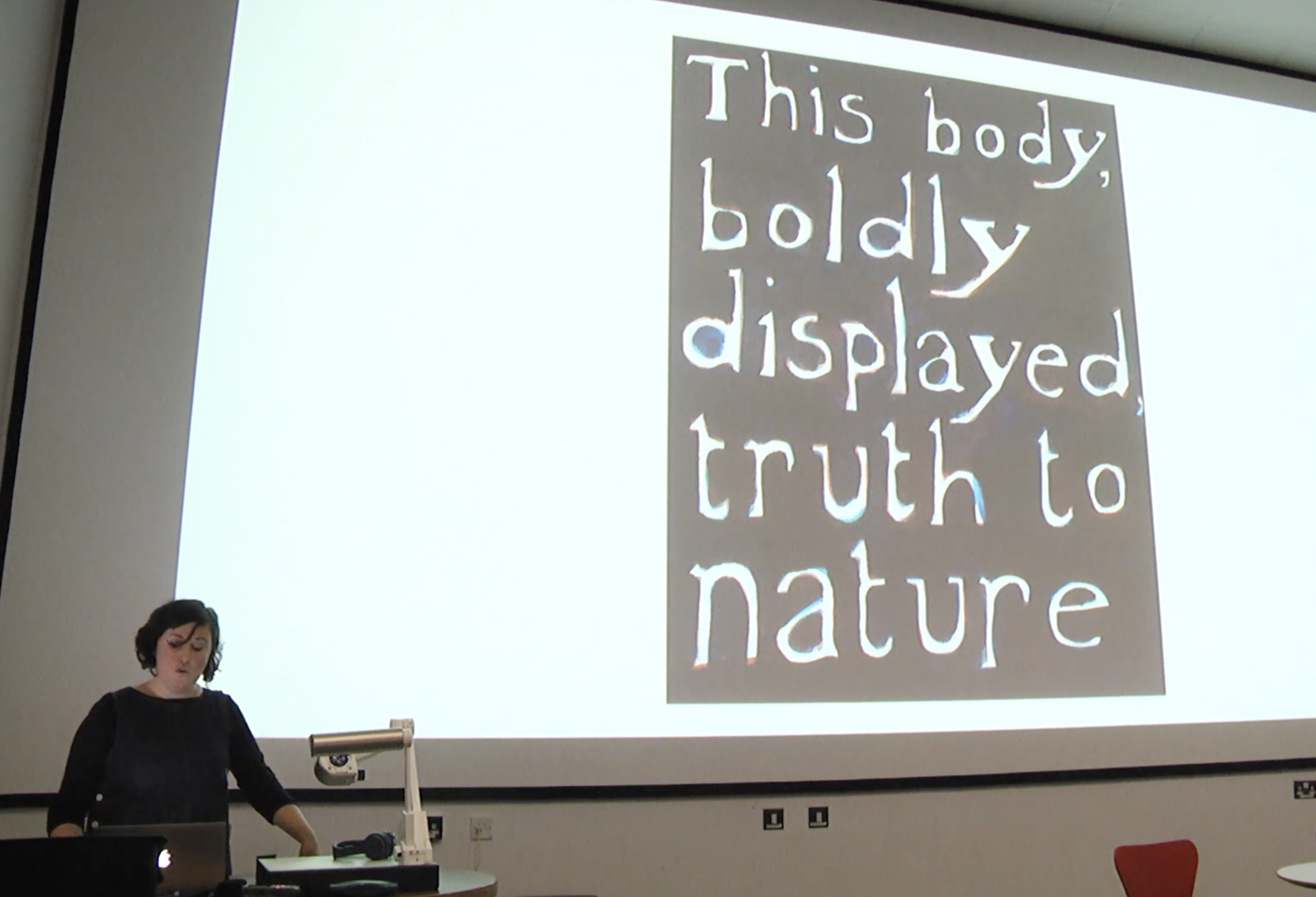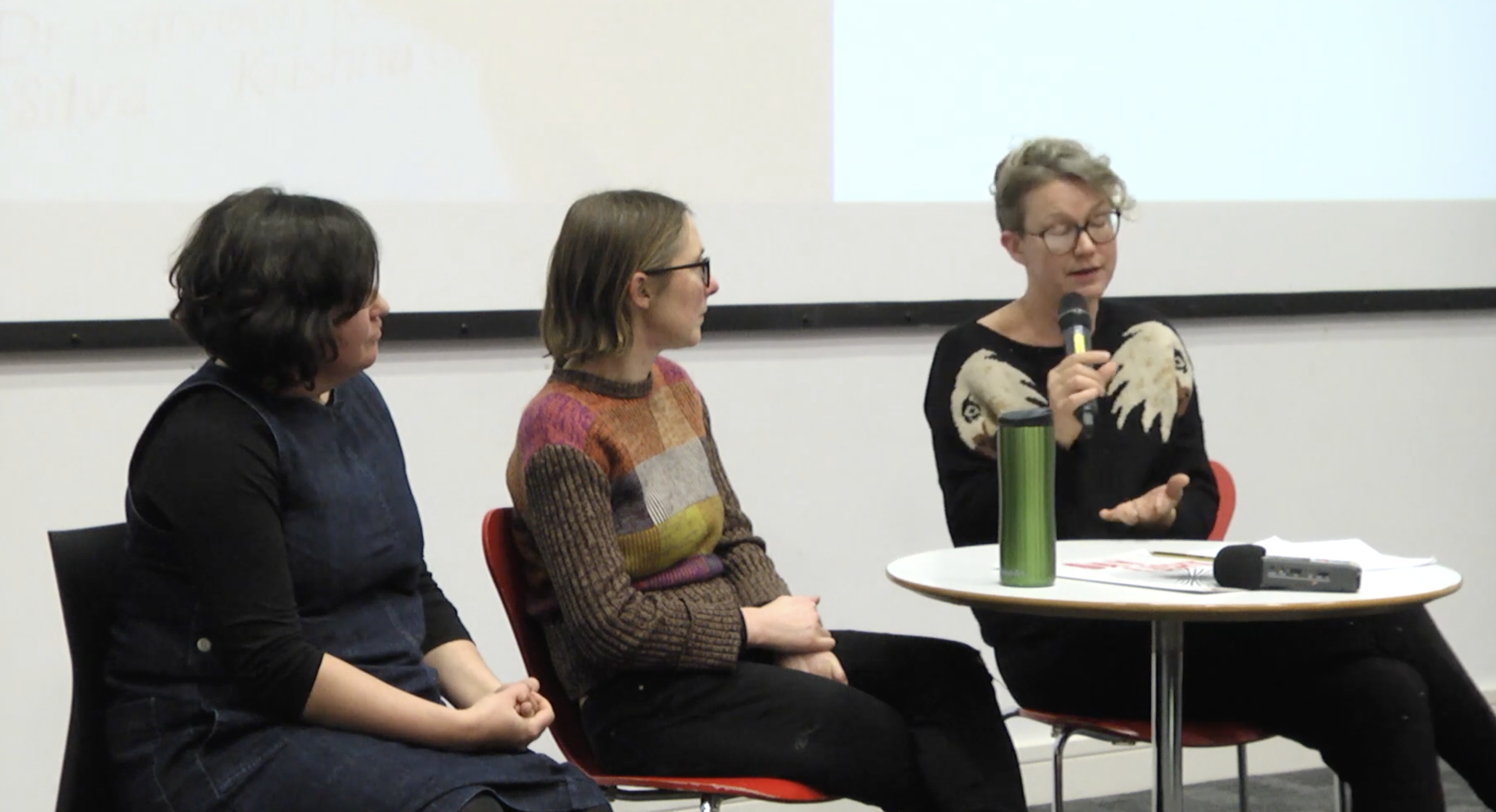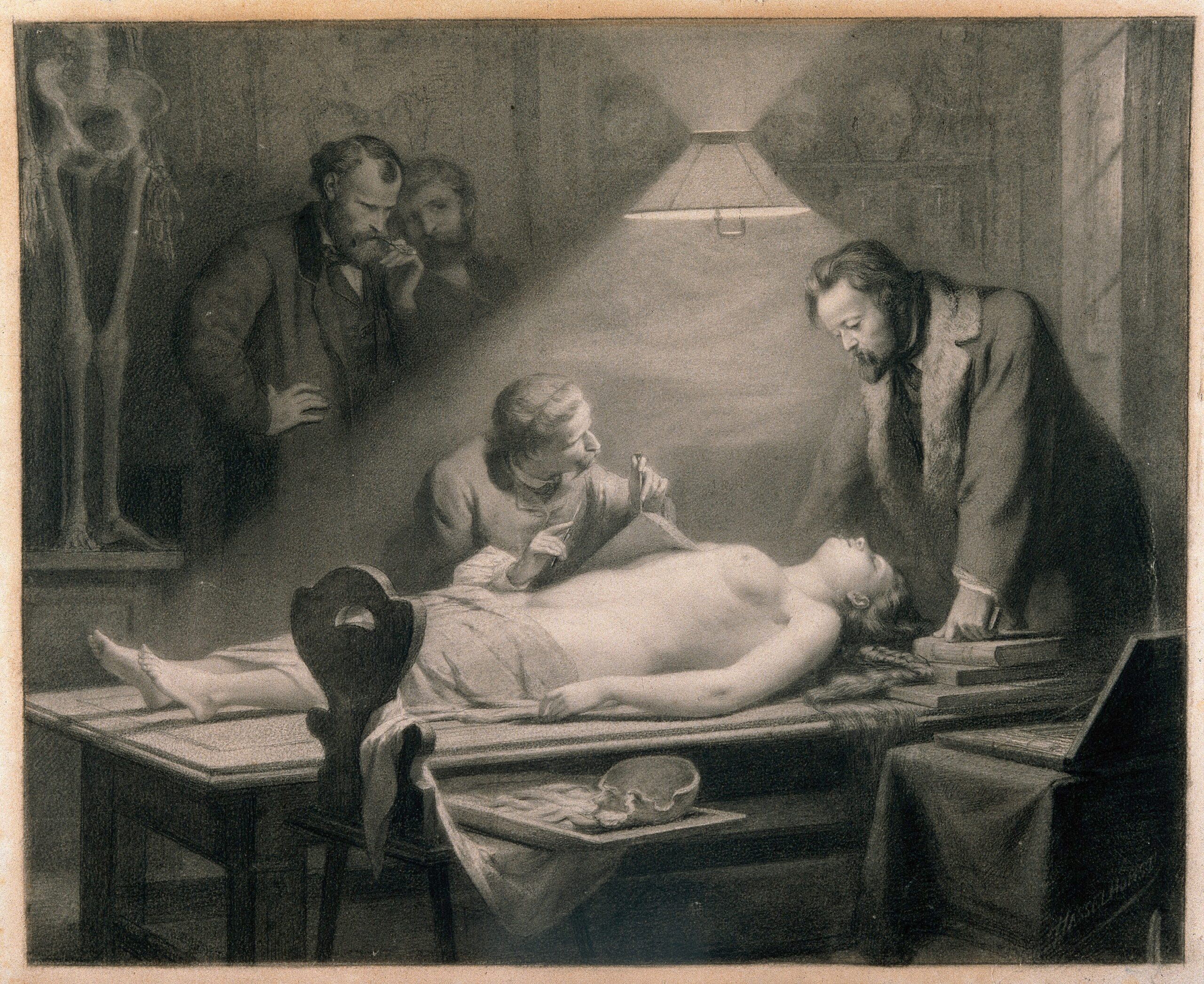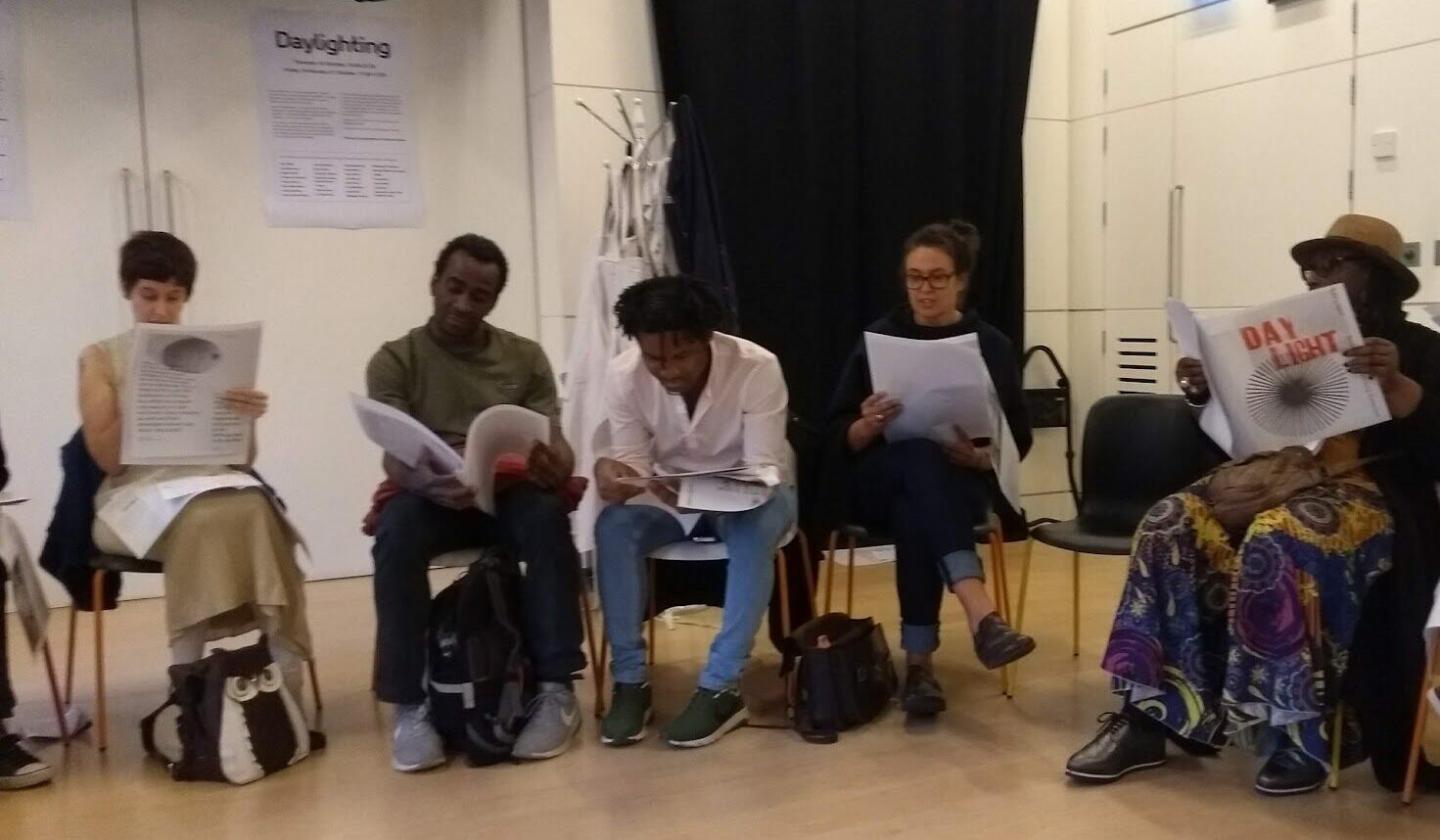Presented by the Department of Art, Goldsmiths.
Series: Curating Differently, Curating Difference
DAYLIGHTING was a curated programme at Wellcome Collection that asked how we might breach or intervene on existing archives and systems of knowledge, to change narratives and amplify new ways of speaking from the margins. At the core was the public production of DAYLIGHT, a collaborative artwork in the form of a newspaper exploring the presence of women through their art, thinking and speculations. As curators we worked with artists from a range of disciplines and included a number of trans, non binary artists and women of colour in the programme. Reflecting on recent scholarship about the exclusionary language that binds us to gendered norms and the epistemic violence inherent in the normative values of the archive felt important to the project and we used the word womxn and women interchangeably across the programme to represent the open future towards which we were working.
The use of the word womxn was picked up by campaigners against the GRA (Gender Recognition Act) who complained very publicly about a tweet from Wellcome using the word. Despite conciliatory gestures towards us the Wellcome’s Press made a public apology (without our consent) to appease the twitter mob. We found ourselves in the middle of a furore that strangely reflected the erasure that the project was trying to resist, this was disastrous for our programme and created a narrow frame for the work we had created.
In this lecture we lay out some of the theoretical grounding for uses of alternative language around gender and the problematics of the archive. We are still working through possible outcomes, we want to use this discussion to think about how we counter the erasure which took place, the very real dangers that the lack of critical engagement presented to our artists and open up a discussion about the use of gendered language in programming and share what we have learnt and discuss alternatives.
Curators, Madeleine Collie, Clare Qualmann and Amy Sharrocks

Madeleine Collie giving a talk with Jade Montserrats artwork on screen

Maddy, Clare and Amy in discussion

Dissecting a female body 1864

Support Systems Reading